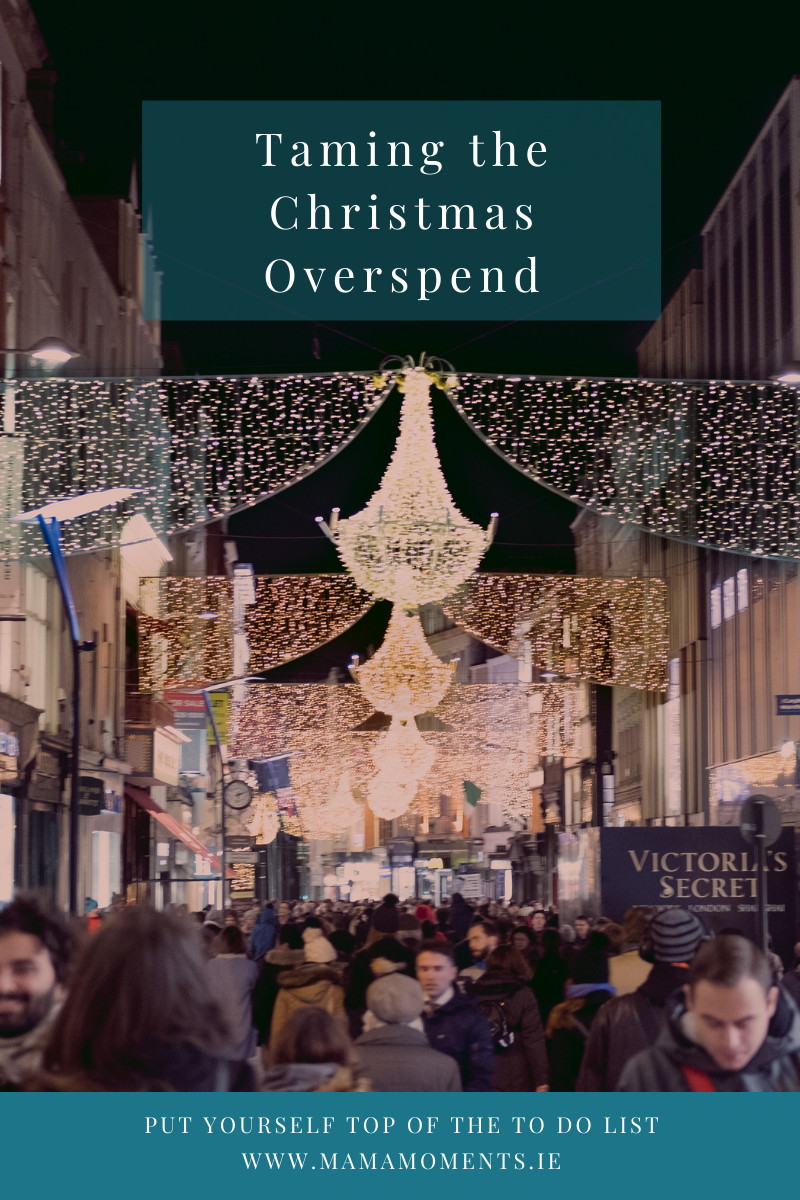 Every year, as the weeks to Christmas appear to fly by, we consistently remind ourselves that we don't need as much, or that we're putting a cap on how much presents cost, or we're easing up on the tins of biscuits. But every year, the bank balance looks significantly painful by the time December rolls around. Christmas is expensive. The cost of this magical but pricey time of year still comes as a shock. Taming the Christmas overspend is one of the hardest things to do as we get swept up in the intensive marketing of it all. Every food store sells us the idea of an overloaded dining table with the most delicious foods we may never eat on an ordinary day. But because it's Christmas and a tradition, we buy the pigs in blanket and the prawn cocktail.
Every year, as the weeks to Christmas appear to fly by, we consistently remind ourselves that we don't need as much, or that we're putting a cap on how much presents cost, or we're easing up on the tins of biscuits. But every year, the bank balance looks significantly painful by the time December rolls around. Christmas is expensive. The cost of this magical but pricey time of year still comes as a shock. Taming the Christmas overspend is one of the hardest things to do as we get swept up in the intensive marketing of it all. Every food store sells us the idea of an overloaded dining table with the most delicious foods we may never eat on an ordinary day. But because it's Christmas and a tradition, we buy the pigs in blanket and the prawn cocktail.
Added to that, the idea of new clothes for everyone in the family (including the Christmas PJs!), updated decorations (forget about changing the theme of your decoration every year), the presents for teachers, friends, and random unexpected expenses, it can all mount up leaving our credit cards aching.
We are now being told to shop early to avoid disappointment, meaning we may very likely spend more than we need to and buy more than we should. The frenzy of Christmas shopping is erratic enough without believing we may not have that must-have toy under the tree or that our favourite candles will go out of stock.
It's believed that one in five of us will end up in debt this Christmas, leading to a stress none of us wants. However, there are ways, which are not magical but common sense, to curb our spending this year (and every year). The idea is to avoid needing to pay off a Christmas credit card debt (and the costly interest) in the first few months of the new year.
Save (and save early)
The estimates for how much extra Christmas will cost is as individual as your grandmothers Christmas pudding. No one but you will know your budget and how much Christmas will eat into it. Regardless of how much it may cost you, aim to save that amount throughout the year so that you are not left with a stressful bill.
Saving is a habit we all attempt but not necessarily something we are all good at. It takes practice and sometimes a little sacrifice. Cut back on takeaways for a month and add that unused cash to a savings pile. Given time, you will see your savings grow, and while these savings may not cover the entire cost of Christmas, it will be a good chunk of it.
Budget
Budgets and Christmas don't sound very festive, but considering this is by far one of the most expensive times of our year, a budget could very well be your best friend. If the savings are not there, we need to know how much we can realistically afford to spend on presents, food, outings, and clothes. Without knowing our budget, we leave ourselves wide open for a hefty credit card debt or dipping into our overdraft.
There are plenty of budgeting apps that can help you determine how much money there is left over after the mortgage/rent, bills, and miscellaneous expenses are paid. Knowing your outgoings is just as important, if not more so, as knowing what comes into your pocket.
(psst YNAB is my favourite app and I’ve been using it for years and years. Sign up for a free trial here using my link)
Shop Early (or earlier than Christmas week at least!)
We have a habit of saying that Christmas crept up on us when in reality, Christmas falls at the same time every year. So really, we shouldn't be surprised when it's right around the corner. Yet, this idea that we left it too late is a prime example of overspending. So start shopping a little earlier in November (or October if you're really on the ball) and take your time. Shop around and find the best deals for presents. Remember, if we shop on the high street, we may potentially spend a lot more than if we were to shop online where we can easily manage our budget. And if you are shopping in stores, try to use cash to keep track of what you have left. Blindly tapping your credit card is the easiest way for the costs to mount.
Avoid doing the big Christmas food shop when you're hungry (we shop with our stomachs!), and don't shop when you are short on time because your judgment will be poor when it comes to prices. The same goes for shopping with friends who can easily influence you to buy the more expensive item or more than you need.
And go prepared.
Christmas shopping is stressful, it's loud, and it's busy. So be prepared for a bit of chaos (or shop earlier in the morning when the crowds are less) and remember you don't have to buy the first thing you see.
Presents or Presence
When it comes to presents, why not explore some of these ideas to curb spending this Christmas.
Have a gifting rule - Only buy presents for the children of the family, or gift token presents to the adults-only such as a new decoration for their tree.
Stick to the four gift rule - When buying gifts for your kids, remember the four gift rule for a minimalist Christmas … something to wear, something to read, something they want, and something they need.
Gift Experiences – Ask for or give gift experiences for the kids rather than toys they may not play with. Cinema vouchers, ice cream vouchers, a Zoo membership, or even a day out bowling are great ways to not only spread the cost of gifts but to help parents out on a slow weekend day!
Do It Yourself – Encourage everyone in your extended family to make gifts this year rather than spend a heap of money on gifts.
Only you will know the Christmas must-haves. Those non-negotiables that simply make Christmas for you and your family. When spending, prioritise what you do and don't need this Christmas.

